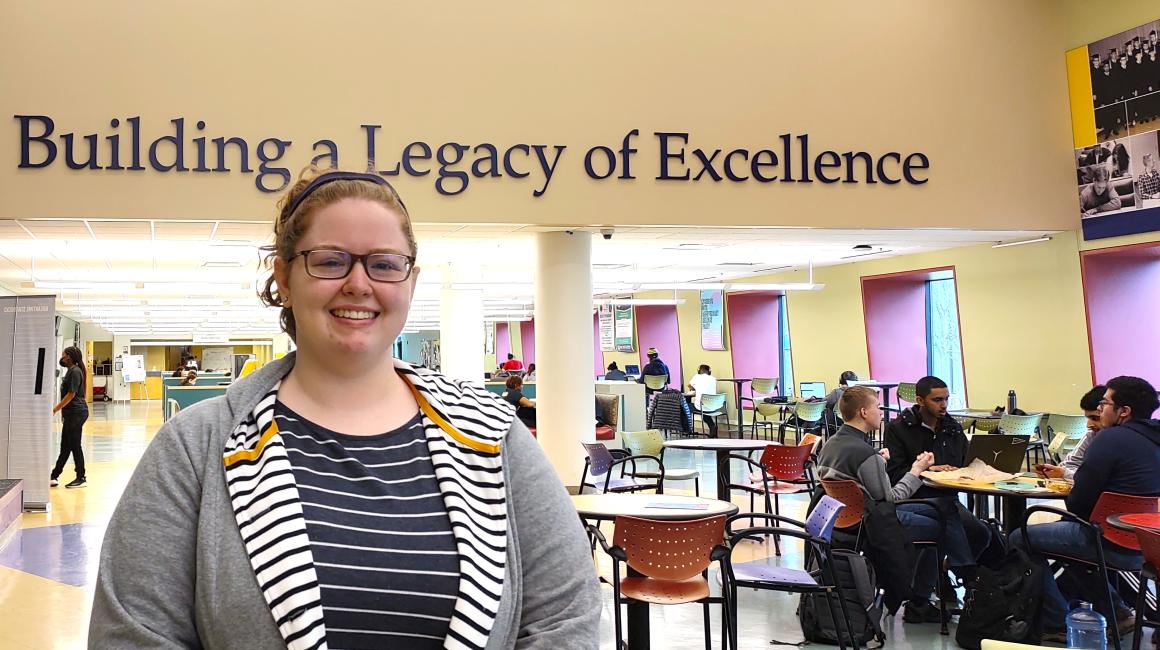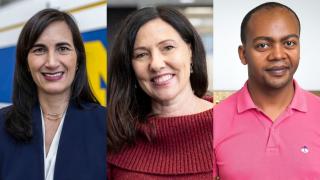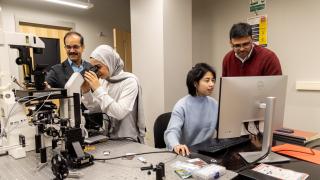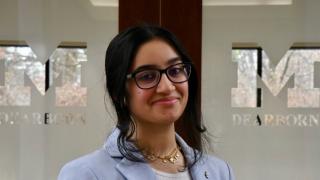
Many people are tired of discussing COVID. But psychology graduate student Katie Smith isn’t one of them — especially when it comes to how families were affected.
Smith has always been interested in working with kids and child psychology has been a big draw for her. She said the experiences people have as children often shape their adult lives — so the impact is broad. But children’s mental health is under-researched.
“Kids are naturally resilient and can handle pressure, but the pressure of growing up while their families adapt (to COVID changes) can have a huge mental impact,” Smith said. “Fear of the unknown and isolation all increase stress. Stress increases, use of immature defense mechanisms increase, and maladaptive behavior may arise. It feels like a ticking time bomb waiting to go off.”
For the year-plus of research she’s spent looking into this, Smith and her thesis research “Parent and Child Adaption to COVID-19” won the 2022 3 Minute Thesis (3MT) Competition on campus. The 3MT Competition, originally developed by The University of Queensland, cultivates academic, presentation and research communication skills with students presenting their work succinctly and in an easy-to-understand way. The virtual campus event was sponsored by the Office of Graduate Studies and the Office of Research.
“I didn’t know anything about 3MT initially,” Smith said. “I was encouraged by Dr. Michelle Leonard, my professor, to submit the idea. I was given a positive nudge towards doing it, and while it was scary, it was equally interesting.”
To gather this information, Smith collected responses from parents — which she is currently still in the process of doing — and examined the reports of academic researchers.
“COVID-19 is very topical now, and I thought about connecting the two. Parents and children are interconnected and the study was vital, which led to my research topic. It was perfecting that balance to showcase the child-parent relationship and how individuals together as a unit influence each other.”
Smith stated that a key aspect of the adaptation boils down to individualistic differences. Families in more challenging scenarios — like economic difficulties and communication gaps — may be closer to the tipping point than others.
But according to Smith’s research, there is good news: It points to an evident decrease in stress as people have adapted to COVID-related changes and when they have found support within their communities. She said counseling and therapy support also have played an important role in this.
Smith said mental health is always addressed case by case by providing the tools and support to parents and children, ranging from individualistic treatment and family therapy to even just talking to some families that may just need the information to understand the situation around them.
“Psychoeducation — which involves informing parents about parenting styles and defense mechanisms to observe, recommendations, research data, action plans and more — is an excellent way to move forward in the present and post-COVID. Some families can work through it independently, while some may require communities to play a huge role in helping them out.”
Smith competed at the Midwestern Association of Graduate Schools 3MT regionals in Milwaukee to represent UM-Dearborn in early April. She didn’t win, but Smith said she gained experience in communicating research and scientific findings and it challenged her to be concise and avoid academic jargon.
“All of this will be useful skills in my future career as a clinical psychologist,” Smith said. “This experience also has broadened my network of peers I can consult with. I’ve met several other 3MT participants that were extremely knowledgeable in a wide variety of fields and specialties. When I listened to everyone’s research, I thought this is a generation that can change the world for the better.”
Smith emphasizes that her campus 3MT win wouldn’t have been possible without the support from professors Michelle Leonard and Caleb Siefert. “Dr. Leonard helped a lot through this process while my adviser Dr. Siefert has always been there since the beginning, leading to this wonderful experience.”
Article by Rudra Mehta.




